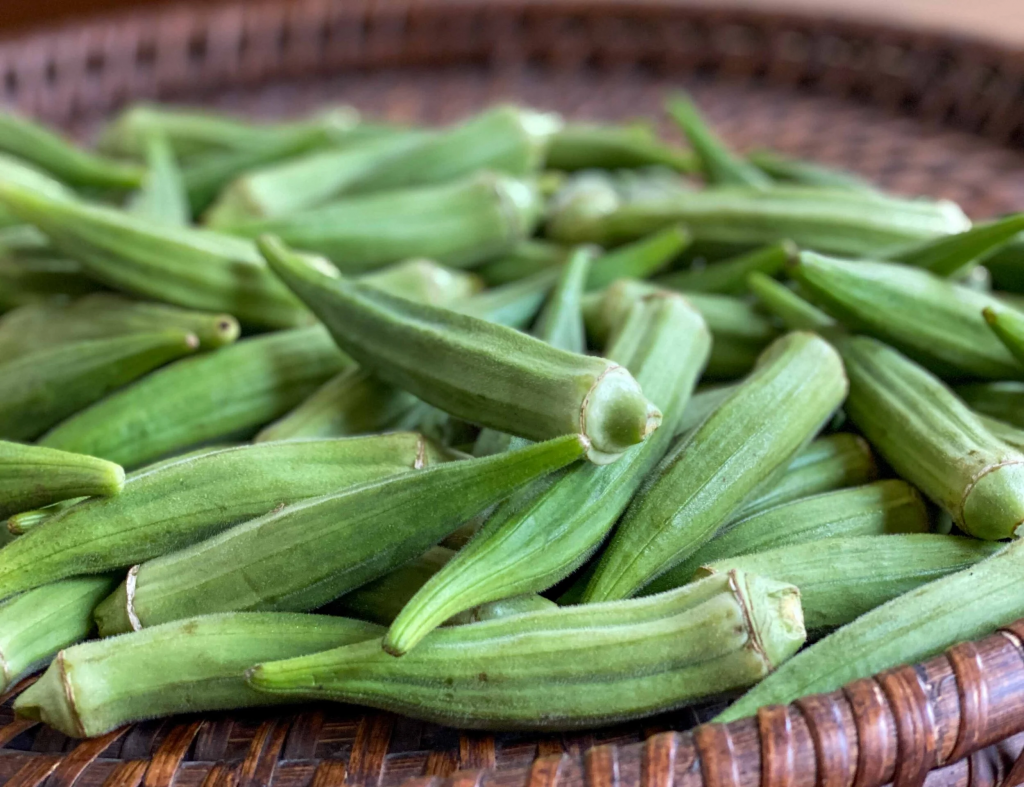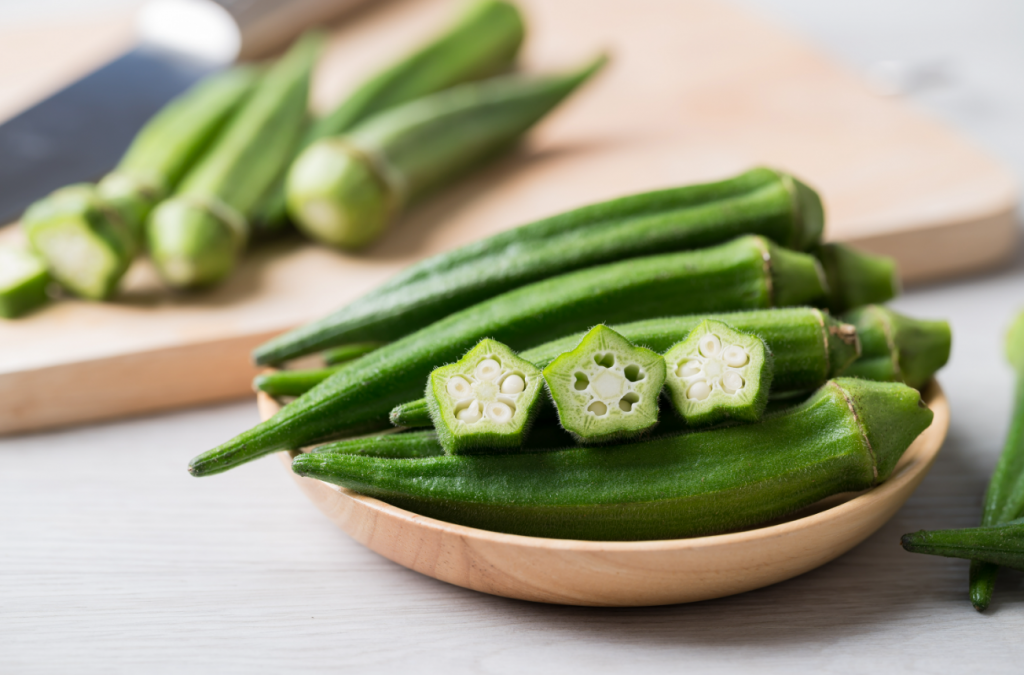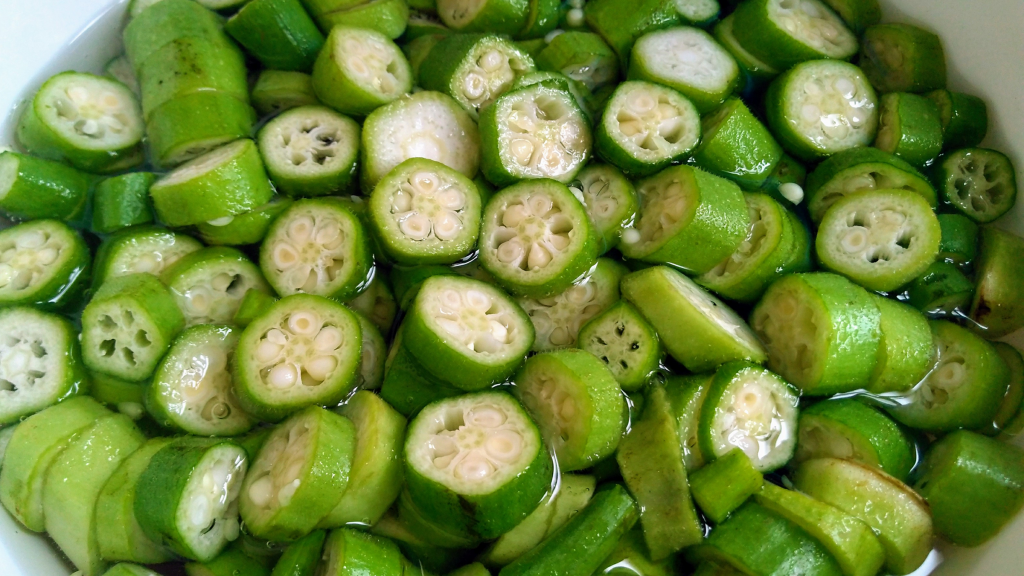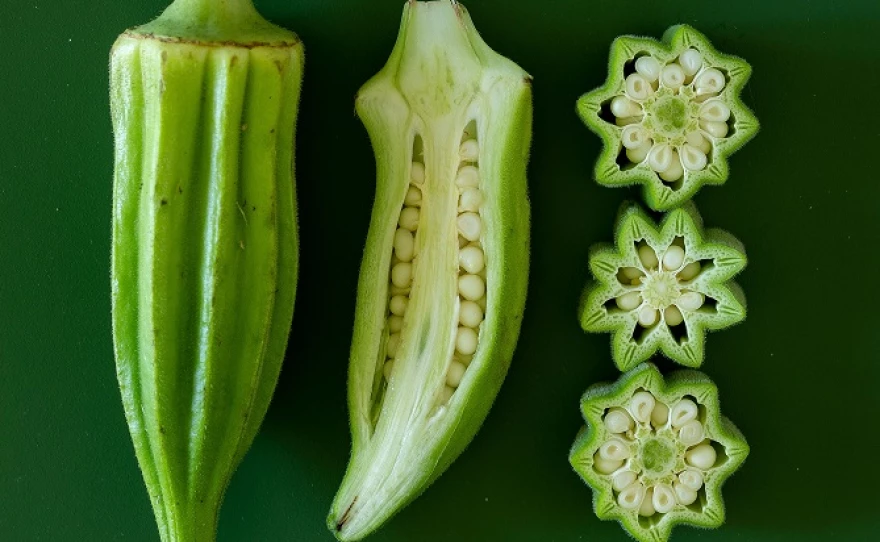Okra, also known as lady’s finger or gumbo, is one of the most underrated vegetables in the world. While it’s a staple in Southern U.S. cuisine and popular across Asia and Africa, many people don’t realize how nutrient-dense this green pod really is. Did you know that okra is packed with fiber, vitamin C, folate, and antioxidants that may support heart health, blood sugar balance, and even skin vitality?
According to nutrition experts, okra provides just 33 calories per cup yet delivers a wealth of vitamins and minerals that can support your daily wellness goals. Beyond its health profile, okra also hides fascinating cultural, culinary, and medicinal secrets. From ancient Egyptian remedies to modern scientific discoveries, this vegetable proves it’s far more powerful than it looks.
In this article, we’ll reveal 17 amazing secrets about okra—from its nutritional wonders and surprising health benefits to practical tips on how to use it in your kitchen. By the end, you’ll look at this humble vegetable with newfound respect and may even find yourself adding it to your weekly grocery list.

The Nutritional Treasure of Okra
Okra is considered a superfood thanks to its nutrient density.
Key Nutrients in Okra (per 100g serving)
- Calories: 33
- Fiber: 3.2g
- Vitamin C: 38% of daily value
- Folate: 22% of daily value
- Magnesium: 14% of daily value
- Vitamin K: 31% of daily value
- Antioxidants: Polyphenols, flavonoids, and quercetin
This impressive profile explains why cultures around the world have used okra not just for food, but also for wellness.

17 Amazing Secrets About Okra
1. Supports Healthy Blood Sugar
Okra contains compounds that may help slow sugar absorption in the gut, making it useful for people managing blood sugar levels.
2. Rich in Gut-Friendly Fiber
The soluble fiber in okra helps regulate digestion, relieve constipation, and nourish good gut bacteria.
3. May Help Reduce Cholesterol
Studies suggest okra can bind to cholesterol in the digestive tract, helping lower bad LDL cholesterol.
4. Boosts Immune System
With its high vitamin C content, okra supports your body’s natural defense system.

5. Beneficial for Pregnant Women
Okra is rich in folate, which is crucial for preventing neural tube defects during pregnancy.
6. Aids in Weight Management
Low in calories and high in fiber, okra helps you feel full longer, making it great for weight control.
7. Packed with Antioxidants
Polyphenols and flavonoids in okra fight oxidative stress, protecting cells from premature aging.
8. Supports Healthy Skin
Okra’s vitamin C and antioxidants promote collagen production, keeping skin firm and radiant.

9. Promotes Heart Health
Magnesium, potassium, and fiber all contribute to lower blood pressure and improved cardiovascular health.
10. Helps Reduce Fatigue
Iron and folate in okra support healthy blood cells, which may reduce tiredness and improve energy levels.
11. Anti-Inflammatory Benefits
Traditionally, okra has been used to soothe inflammation, and modern studies support its role in reducing inflammatory markers.
12. Natural Source of Vitamin K
Vitamin K is important for blood clotting and bone health, making okra an excellent addition to diets for stronger bones.

13. Ancient Egyptian Remedy
Historical records show that okra was used in ancient Egypt for its medicinal and digestive properties.
14. Protects Eye Health
Beta-carotene and vitamin A in okra may reduce the risk of age-related vision problems.
15. Great for Hair Care
Okra gel is sometimes used as a natural hair conditioner to add shine and moisture.
16. Helps Detoxify the Body
Okra’s mucilage (the sticky substance inside) binds to toxins in the digestive tract and helps flush them out.
17. Culinary Versatility
From fried okra in the American South to okra curry in India and gumbo in Louisiana, this vegetable adapts to countless cuisines.

| Secret Benefit | Key Nutrient/Compound | Everyday Tip |
|---|---|---|
| Blood sugar support | Polyphenols, fiber | Add to soups/stews |
| Digestive health | Soluble fiber | Eat lightly steamed |
| Cholesterol reduction | Mucilage fiber | Pair with brown rice |
| Immune boost | Vitamin C | Add to stir-fries |
| Pregnancy support | Folate | Blend into smoothies |
| Weight management | Fiber | Snack on grilled okra |
| Skin & hair | Vitamin C, mucilage | Use in DIY masks |
How to Add Okra to Your Diet
Cooking Methods
- Steamed: Keeps nutrients intact.
- Grilled or Roasted: Reduces sliminess and adds crunch.
- Stews and Curries: Classic way to enjoy its mucilage for thickening sauces.
- Smoothies: Blend lightly steamed okra with fruits for extra fiber.
Case Study Example
Lisa, a 42-year-old office worker, struggled with cholesterol issues. After adding roasted okra and okra soup to her meals three times a week, her cholesterol readings improved within three months. She also noticed better digestion and less bloating.

Safety Considerations
While okra is safe for most people, those on blood-thinning medication should consult a doctor before consuming large amounts due to its high vitamin K. Additionally, moderation is key, as too much fiber can cause digestive discomfort.
Conclusion
Okra is more than just a humble green pod—it’s a nutritional powerhouse with benefits for digestion, heart health, immunity, skin, and more. With its long history, culinary versatility, and modern scientific backing, okra truly deserves its reputation as a hidden superfood.
Frequently Asked Questions
- Does okra really help with blood sugar? Studies suggest it may, but it’s not a replacement for medical treatment.
- How do I reduce the slimy texture? Try grilling, roasting, or cooking with acidic foods like tomatoes.
- Can pregnant women eat okra? Yes, it’s a great source of folate, but always follow medical advice.
- Is it safe for daily consumption? Yes, in moderate amounts, okra can be enjoyed daily as part of a balanced diet.
Disclaimer: This article is for informational purposes only and not a substitute for professional medical advice. Always consult your healthcare provider before making major dietary changes.




